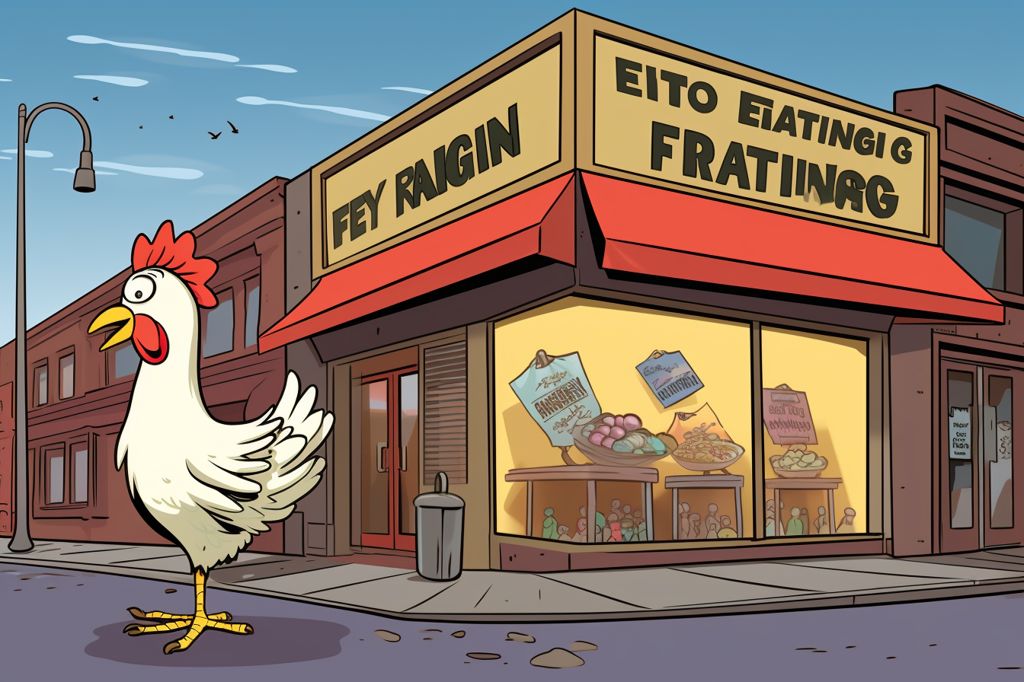Retailers in South Africa are implementing strict measures to maintain egg supply in response to the avian influenza outbreak that has disrupted the egg supply chain. Major retailers like Woolworths and Pick n Pay are restricting egg purchases for customers and collaborating with suppliers to manage stock levels and support stores. The government is also involved in addressing egg production challenges and exploring trade instruments to facilitate the supply of chicken meat in the broiler segment of the poultry sector. The crisis highlights the importance of collaboration and adaptability in ensuring food security.
Responding to the Crisis: Retailers’ Efforts to Maintain Egg Supply
The avian influenza outbreak has significantly disrupted the egg supply chain in South Africa, a crucial component of the nation’s food security. To mitigate the impact of this unprecedented crisis, major retailers such as Woolworths and Pick n Pay have enforced strict measures like restricting egg purchases for customers. This article explores the steps taken by these retailers, the challenges faced by the egg industry, and the government’s reaction to the situation.
Cities like Cape Town and Johannesburg are experiencing particularly severe consequences of the avian influenza crisis, where the H5 and H7 strains of bird flu have decimated poultry farms. As a result, Woolworths has imposed a temporary six-egg limit per customer across all its stores, including online and Dash services. The retailer is working tirelessly with farmers to reestablish a consistent egg supply as quickly as possible. Amid supply difficulties, Woolworths remains dedicated to maintaining the well-being of its hens through strict biosecurity protocols and constant vigilance of the avian flu situation locally and internationally.
Pick n Pay has also responded to the crisis by urging customers to shop responsibly and setting limits on egg purchases based on the region, ranging from one to two egg packs per customer. The retailer is collaborating closely with its suppliers to manage stock levels and support stores in areas where suppliers have been severely impacted by the avian influenza outbreak.
Government Involvement: Addressing Egg Production Challenges
While South Africa’s largest retailer, Shoprite, has chosen not to implement egg rationing measures, it is essential to recognize that the egg industry’s challenges go beyond the supply chain. The crisis has led the Minister of Agriculture, Land Reform and Rural Development, Thoko Didiza, to meet with retailers to discuss the situation’s ramifications. The minister’s department acknowledges that the primary challenge lies in egg production, with supply constraints prevalent in certain regions.
Minister Didiza is concentrating on measures to increase egg supply while simultaneously containing the disease’s spread. One such strategy includes enhancing the efficiency of issuing import permits for egg products, ensuring that consumers have access to an adequate supply. Furthermore, the minister has discussed containment measures and potential short- and long-term solutions for managing outbreaks, such as vaccination.
Expanding the Scope: Broader Implications for the Poultry Sector
In addition to addressing the egg production crisis, Minister Didiza is working with the Minister of Trade, Industry and Competition, Ebrahim Patel, to explore trade instruments that facilitate the supply of chicken meat. This is particularly critical in the broiler segment of the poultry sector, which has also been significantly affected by the avian influenza outbreak.
The ongoing avian influenza crisis underscores the vulnerability of the global food supply chain and the need for rapid, coordinated action among retailers, suppliers, and government bodies. The measures taken by Woolworths, Pick n Pay, and the South African government exemplify the importance of collaboration in minimizing the impact of such crises and ensuring food security for all.
Lessons from the Crisis: Adaptability and Resilience
Adaptability and resilience are critical traits for both retailers and governments when confronting unexpected challenges, such as the avian influenza outbreak. As South Africa grapples with this crisis, the nation’s approach to managing the egg supply chain serves as a testament to the importance of collaboration and innovative solutions in securing the food supply, even in the face of a rapidly changing and uncertain landscape.
1. Why are retailers in South Africa implementing strict measures to maintain egg supply?
Retailers in South Africa are implementing strict measures to maintain egg supply due to the avian influenza outbreak that has disrupted the egg supply chain.
2. Which major retailers are restricting egg purchases for customers because of the avian influenza outbreak?
Major retailers like Woolworths and Pick n Pay are restricting egg purchases for customers to manage stock levels and support stores amid the avian influenza outbreak.
3. How is the government involved in addressing egg production challenges caused by the avian influenza outbreak?
The government is exploring trade instruments to facilitate the supply of chicken meat in the broiler segment of the poultry sector and enhancing the efficiency of issuing import permits for egg products. The Minister of Agriculture, Land Reform and Rural Development, Thoko Didiza, is also meeting with retailers to discuss the situation’s ramifications.
4. What measures are Woolworths taking to reestablish a consistent egg supply amid supply difficulties?
Woolworths is working tirelessly with farmers to reestablish a consistent egg supply as quickly as possible while maintaining the well-being of its hens through strict biosecurity protocols and constant vigilance of the avian flu situation locally and internationally.
5. How is Pick n Pay collaborating with its suppliers to manage stock levels and support stores amid the avian influenza outbreak?
Pick n Pay is collaborating closely with suppliers to manage stock levels and support stores in areas where suppliers have been severely impacted by the avian influenza outbreak.
6. What is the primary challenge faced by the egg industry, according to the Minister of Agriculture, Land Reform and Rural Development?
The primary challenge faced by the egg industry, according to the Minister of Agriculture, Land Reform and Rural Development, is egg production, with supply constraints prevalent in certain regions.
7. How are the Ministers of Agriculture, Land Reform and Rural Development, and Trade, Industry and Competition working together to address the avian influenza outbreak’s broader implications for the poultry sector?
The Ministers of Agriculture, Land Reform and Rural Development, and Trade, Industry and Competition are exploring trade instruments that facilitate the supply of chicken meat, particularly in the broiler segment of the poultry sector affected by the avian influenza outbreak.
8. What lessons can be learned from the avian influenza crisis in South Africa?
The avian influenza crisis in South Africa highlights the importance of collaboration and adaptability in ensuring food security. Rapid, coordinated action among retailers, suppliers, and government bodies is critical in minimizing the impact of such crises and ensuring food security for all.








